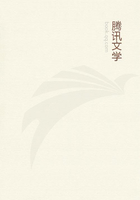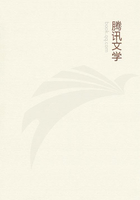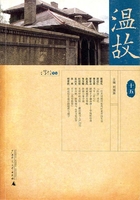The next great operation of the agricultural year in Egypt is the sowing of the seed in November, when the water of the inundation has retreated from the fields. With the Egyptians, as with many peoples of antiquity, the committing of the seed to the earth assumed the character of a solemn and mournful rite. On this subject I will let Plutarch speak for himself. What, he asks, are we to make of the gloomy, joyless, and mournful sacrifices, if it is wrong either to omit the established rites or to confuse and disturb our conceptions of the gods by absurd suspicions? For the Greeks also perform many rites which resemble those of the Egyptians and are observed about the same time. Thus at the festival of the Thesmophoria in Athens women sit on the ground and fast. And the Boeotians open the vaults of the Sorrowful One, naming that festival sorrowful because Demeter is sorrowing for the descent of the Maiden. The month is the month of sowing about the setting of the Pleiades. The Egyptians call it Athyr, the Athenians Pyanepsion, the Boeotians the month of Demeter . For it was that time of year when they saw some of the fruits vanishing and failing from the trees, while they sowed others grudgingly and with difficulty, scraping the earth with their hands and huddling it up again, on the uncertain chance that what they deposited in the ground would ever ripen and come to maturity. Thus they did in many respects like those who bury and mourn their dead.
The Egyptian harvest, as we have seen, falls not in autumn but in spring, in the months of March, April, and May. To the husbandman the time of harvest, at least in a good year, must necessarily be a season of joy: in bringing home his sheaves he is requited for his long and anxious labours. Yet if the old Egyptian farmer felt a secret joy at reaping and garnering the grain, it was essential that he should conceal the natural emotion under an air of profound dejection. For was he not severing the body of the corn-god with his sickle and trampling it to pieces under the hoofs of his cattle on the threshing-floor? Accordingly we are told that it was an ancient custom of the Egyptian corn-reapers to beat their breasts and lament over the first sheaf cut, while at the same time they called upon Isis. The invocation seems to have taken the form of a melancholy chant, to which the Greeks gave the name of Maneros. Similar plaintive strains were chanted by corn-reapers in Phoenicia and other parts of Western Asia. Probably all these doleful ditties were lamentations for the corn-god killed by the sickles of the reapers. In Egypt the slain deity was Osiris, and the name Maneros, applied to the dirge, appears to be derived from certain words meaning Come to thy house, which often occur in the lamentations for the dead god.
Ceremonies of the same sort have been observed by other peoples, probably for the same purpose. Thus we are told that among all vegetables corn, by which is apparently meant maize, holds the first place in the household economy and the ceremonial observance of the Cherokee Indians, who invoke it under the name of the Old Woman in allusion to a myth that it sprang from the blood of an old woman killed by her disobedient sons. After the last working of the crop a priest and his assistant went into the field and sang songs of invocation to the spirit of the corn. After that a loud rustling would be heard, which was thought to be caused by the Old Woman bringing the corn into the field. A clean trail was always kept from the field to the house, so that the corn might be encouraged to stay at home and not go wandering elsewhere. Another curious ceremony, of which even the memory is now almost forgotten, was enacted after the first working of the corn, when the owner or priest stood in succession at each of the four corners of the field and wept and wailed loudly. Even the priests are now unable to give a reason for this performance, which may have been a lament for the bloody death of Selu, the Old Woman of the Corn. In these Cherokee practices the lamentations and the invocations of the Old Woman of the Corn resemble the ancient Egyptian customs of lamenting over the first corn cut and calling upon Isis, herself probably in one of her aspects an Old Woman of the Corn.
Further, the Cherokee precaution of leaving a clear path from the field to the house resembles the Egyptian invitation to Osiris, Come to thy house. So in the East Indies to this day people observe elaborate ceremonies for the purpose of bringing back the Soul of the Rice from the fields to the barn. The Nandi of East Africa perform a ceremony in September when the eleusine grain is ripening. Every woman who owns a plantation goes out with her daughters into the cornfields and makes a bonfire of the branches and leaves of certain trees. After that they pluck some of the eleusine, and each of them puts one grain in her necklace, chews another and rubs it on her forehead, throat, and breast. No joy is shown by the womenfolk on this occasion, and they sorrowfully cut a basketful of the corn which they take home with them and place in the loft to dry.
The conception of the corn-spirit as old and dead at harvest is very clearly embodied in a custom observed by the Arabs of Moab. When the harvesters have nearly finished their task and only a small corner of the field remains to be reaped, the owner takes a handful of wheat tied up in a sheaf. A hole is dug in the form of a grave, and two stones are set upright, one at the head and the other at the foot, just as in an ordinary burial. Then the sheaf of wheat is laid at the bottom of the grave, and the sheikh pronounces these words, 'The old man is dead. Earth is afterwards thrown in to cover the sheaf, with a prayer, May Allah bring us back the wheat of the dead.

